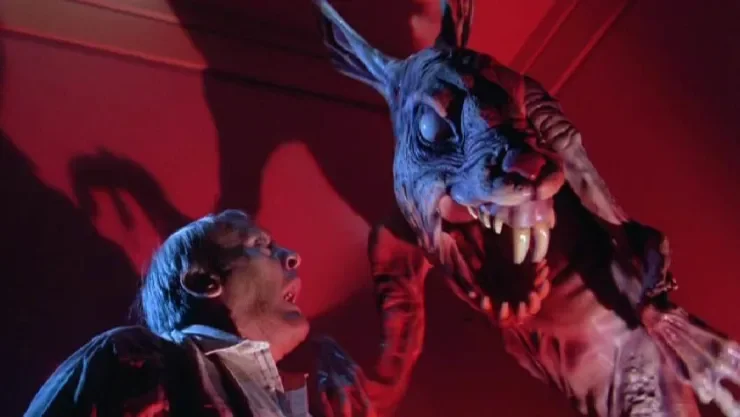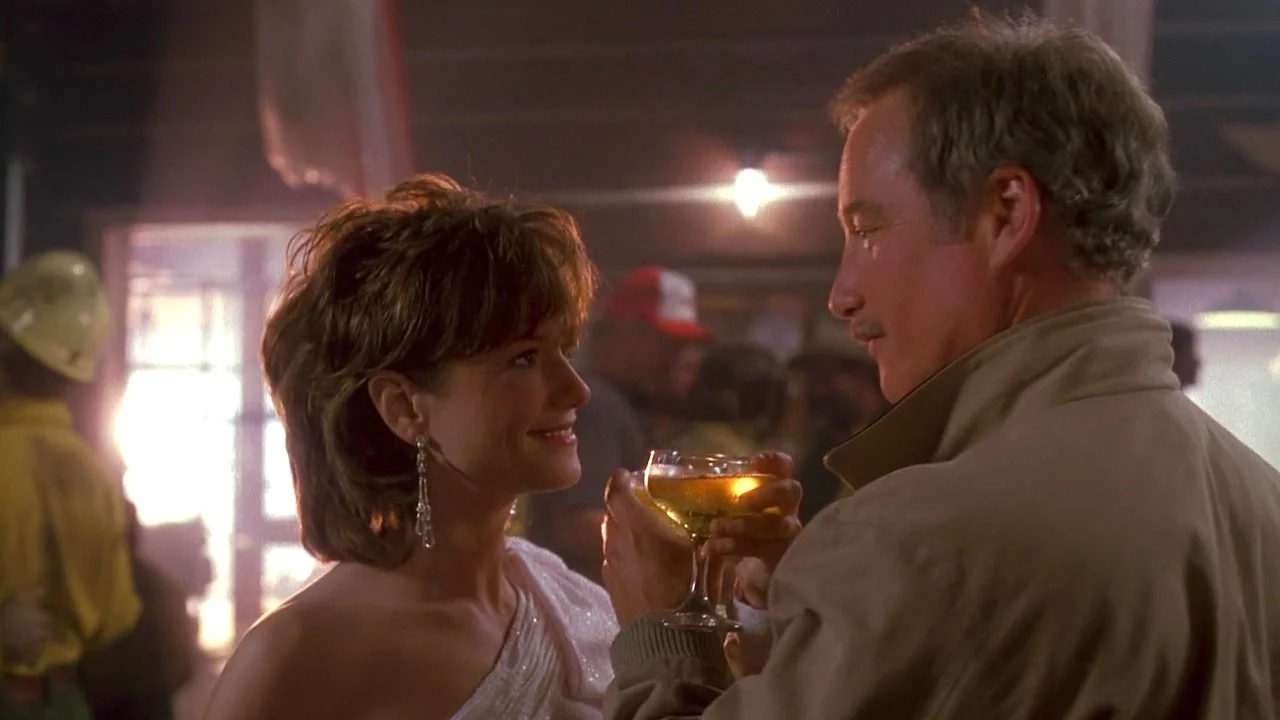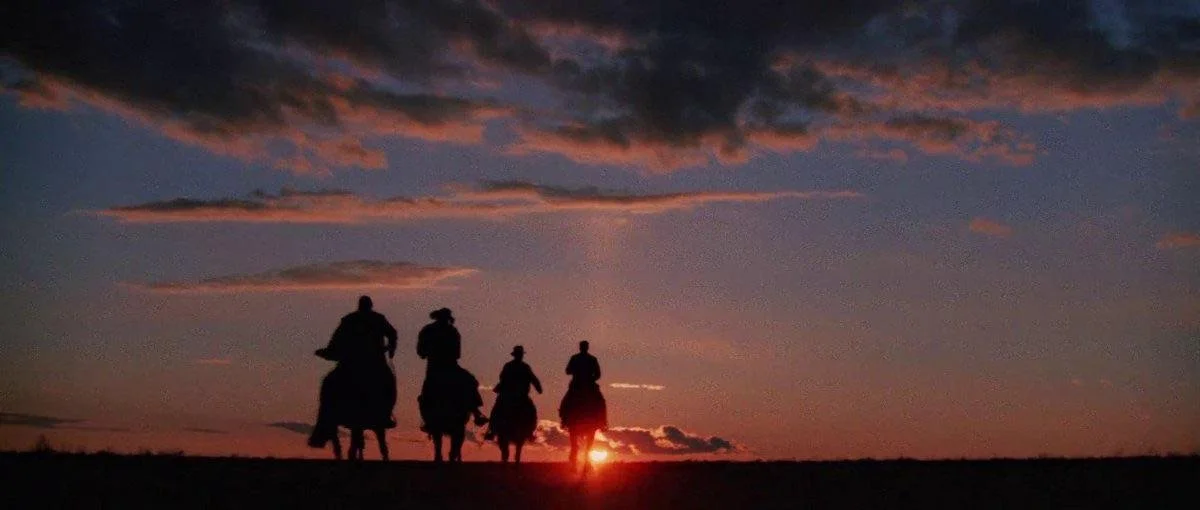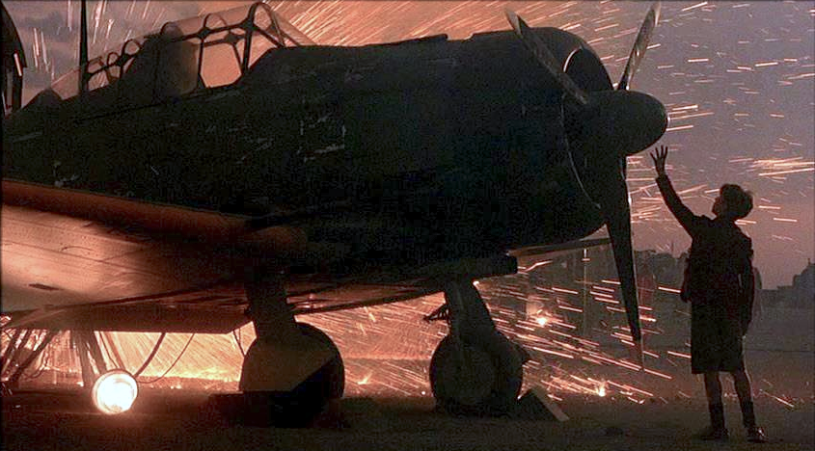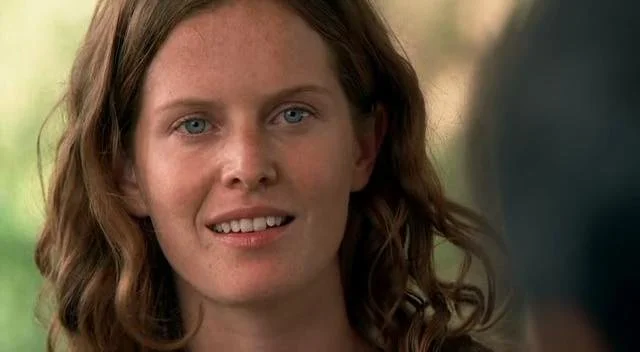Recent Articles
I Had To Go Back: Flashing Forward to LOST Season Four!
This week, let’s quickly break down the brief LOST Season Four. Gone are the 20+ episode seasons, mostly gone are the traditional flashbacks! In their place are new twists to the format, a bumper crop of new characters, and one of the best episodes of the show ever. Please be my constant and read along!
Season Four of LOST represented a noticeable change in pace and structure for a show that was previously restricted by both. Freed from the space of a full 22-episode American season of television, and given a series end date to aim for, this batch of fourteen hours feels like it moves incredibly fast, picking up more and more velocity as each episode passes.
This is both a gift and a curse for LOST! It’s a gift in that the second half of its narrative gets to dispense with its signature teasing and deferring and can-kicking and start addressing mysteries both old and new with relative quickness. We’re introduced to new characters, then provided context regarding what they’re all about pretty much immediately. Everyone addresses obvious conflicts right off the bat rather than making a concerned face then ignoring them (at one point, John Locke straight up asks Ben “what is the Monster?”). Most importantly, LOST confidently explores the limits of the types of stories it can tell, in one instance even jumping through time and space in one episode. This would prove to be a crucial development for the final two seasons, which expand on this ambition exponentially.
However, something that is undeniably missing from an otherwise stellar season of LOST are those pockets of air that allow you (and the show) to breathe. Turns out that the much-maligned “filler” wasn’t such a bad thing; there is no “Tricia Tanaka is Dead” or “Outlaws” to be found in Season Four, and it’s a shame. Those were the episodes, light on overarching mythology though they may be, where we really got to see our future faves develop, their personalities fleshed out before inevitably throwing them into life-and-death situations. Hell, without “filler”, we’d never have such joyful shit as the island golf course, ya know? There’s nothing really like that in Season Four, nor really the last three seasons in total, and you can definitely feel the loss. For better or worse, LOST is mostly all business from here on out.
That said, watching Season Four live (minus one major bit of real-world frustration halfway through; we’ll talk about it) felt invigorating after an up-and-down Season Three. All of a sudden, my favorite show was all forward momentum and propulsion, where it had previously been stalling and jerking. We certainly had left the weeks and weeks of being locked in polar bear cages behind.
To celebrate this truncated season of LOST, then, here are four notable things to highlight!
1. The flashforwards
The first major change in Season Four of LOST is its continued pursuit of the story format alteration the Season Three finale twist provided. Yes, we now are able to flash forward in time and check in on our characters years later, when some have made it off the island and are just absolutely miserable. Hurley is back in the Santa Rosa mental institution, Jack and Kate are trying their best to play house and raise baby Aaron (Claire’s child,) Kate’s trying to beat her prison rap sheet, Sayid is now Ben’s personal assassin and John Locke….well, John Locke is dead.
From the outside, it’s a simple change. But in practice, it’s a crazy mix-up to the status quo, and it really went a long way into making the show exciting again. It was no secret that the show had begun searching for scraps at the bottom of the flashback barrel in order to maintain the “LOST format”. All of a sudden, Damon Lindelof, Carlton Cuse and the writing staff seemed to find a second wind, just by virtue of placing our characters in future situations, instead of having to constantly create new pasts for them. No more having to explain how Jack got his tattoos, or how Hurley got fast, or why Desmond calls people “brotha”. No, now the show can call its shot by showing us destinations before undergoing the journey. Why is Locke in a coffin? Keep watching. Why is Sun off the island, but not Jin? Keep your eye on him. So on and so forth.
Not all the flash-forwards were brilliant, to be clear; Jack and Kate getting engaged and continuously being awful to each other was a real season lowpoint. Although I quite like the format “twist” of “Ji Yeon” (Sun flash-forward, Jin flashback), not every fan enjoyed the cruel rug pull. And not every episode of Season Four necessarily flashed to the future. There were still good old-fashioned flashbacks to be found (we even go all the way back and see Locke’s birth), but in this case, they feel like welcome throwbacks, and not massive yokes around the show’s neck. The flash-forwards were in general a total success! Who doesn’t want to see Sayid merc people again?
Also, it was sort of magical realizing that our castaways getting off the island was legitimately just the halfway point of the Bigger LOST Narrative. Getting this much time with our characters off the island is a story turn that legitimately seemed impossible just a season or two prior. It’s downright bizarre seeing Jack at Hurley’s institution, much less seeing Kate in a courtroom. But because we’re in such uncharted territory, you lean in more. As an audience member watching live, I no longer precisely knew what a given episode was going to look like. It was thrilling.
Let this be a lesson, kids. Sometimes in order to move forward, you have to stop looking back.
2. The freighter
Something I find funny about the new characters in Season Four is that they all essentially come from the same source: a giant fucking boat parked just offshore of the island. I’m not sure one vehicle has ever spawned the entirety of a LOST season’s newbies before.
Anyway, the fact that there’s a freighter that close to the island at all represents a major fucking sea change for the show, and there’s a little something to say about all of the major players on it (including a returning favorite). So let’s talk about them!
Daniel Faraday
I’m not quite as enamored with Faraday as some fans, but what is undeniable is the infusion of energy the show receives the second he appears on screen. There just is no other actor on the show quite like Jeremy Davies, whose line readings are filled with mumblecore aesthetic. Somewhat paradoxically, Davies’ Faraday is also tasked with helping explain to the other characters (and us) the increasingly complicated sci-fi mechanics the show is utilized, including how time travel works, never an easy task. Somehow, it works. Maybe it’s the unique character of his delivery, but Faraday ends up being the perfect vessel for this heavy exposition.
The novelty of Faraday’s existence on the show starts wearing off for me somewhere around “The Constant”; I could only deal with a guy who constantly seems on the verge of tears for so long. But I’ll always welcome him into my heart since he is the first person I think of when I reflect back on the seismic shift in tone after Season Four. Maybe it’s because he’s the first of the freighter folk that we meet, maybe it’s because his whole storyline is kind of an epic time-travel tragedy (the full scope of which won’t be fully realized until the end of Season Five), but Davies will always be the figurehead of LOST: Part Two to me,
Oh, and everyone’s insistence on calling him Dan for short? No, no, no. He is not a Dan. That man is a Daniel if ever there was one. I will not negotiate on this.
Miles Straume
I’ll give Miles this: he easily has the most intriguing past life of any of the Season Four newbies. The idea of a guy who has the incredible ability to read the last thoughts of dead people, but is only able to leverage into a slightly scummy side hustle, is pretty intriguing, and quintessentially LOST-ian. Characters with “sixth senses” were in short supply on the island (Hurley is the only other one that comes to mind), so having Miles roll in was a nice extra color in the show’s palette.
I think future seasons contain the best Miles stuff, especially when he and Sawyer start becoming buddies. Ironically, though, he may be too much like Sawyer in Season Four, all sarcasm, eye-rolls and general attitude. On this rewatch, I learned to appreciate it, especially knowing what to come, but the actual archetype Miles represents can be a little much. Ken Leung remains one of the more underrated actors that LOST ever employed, so he makes more out of it than a lesser performer would, but Mr. Straume was more of an irritant than I had recalled.
Frank Lapidus
I fully and freely admit that I have an irrational love for ol’ Lapidus, if only because, like Daniel Faraday, LOST didn’t quite have a character like him on the roster. He’s just a slightly ornery yacht-rock-lookin’ dude, perfectly happy to wear a half-buttoned Hawaiian shirt as he is a pilot’s uniform. Outside of a beautiful moment in the series finale, Season Four probably gives Frank the most to do (he’s mostly confined to hanging out in the back and looking exasperated in Season Five), so he really stands out in this batch of episodes.
For as cranky as he often is, his best quality is his ability to be a “go-with” guy. Sent to the island on a mission? He’s your guy. Need him to help you get off the island once they realized they were misled? He’s also your guy! Need him to help cover up the entire plane crash and rescue mission in order to protect the lives of those left behind? He may not understand it, but he’s got your back. He was LOST’s ultimate utility player, brilliantly and easily portrayed by Jeff Fahey. If nothing else, Frank was certainly the only character to ever receive the nickname “Kenny Rogers” from Sawyer. Here’s to you, Captain Lapidus.
Charlotte Lewis
When any show adds a bunch of new characters on top of a cast that is already fairly expansive, it’s inevitable that one of the newcomers will draw the short straw and not receive the same attention as everyone else. That short straw was drawn by Charlotte Lewis, sad to say.
Of the four main freighter folk, she is the only one whose backstory remains relatively unexplored, which is a shame since the hints that she was born and raised on the island would seem to position her as a major player going forward. Unfortunately, that never really materializes for either Charlotte or Rebecca Mader, the actress that portrays her. She is sort of saddled as being the love interest for Daniel, and we briefly see her past as an archeologist, but otherwise her actual purpose in the finished text of LOST remains muddled. Worst of all, I feel like her personality never quite gets established in the same way her compatriots did, making her kind of fade into the larger background of the show before her death near the beginning of Season Five.
Charlotte is actually difficult to fully evaluate for that exact reason. It’d be easy to write off Mader as just not up to the task, but with so little to really chew on or work with, it’s astounding she was able to make any impression at all. Sorry, Charlotte. Hope you’re able to eat more chocolate in heaven.
Martin Keamy
Martin Keamy is not exactly the most memorable villain in LOST’s arsenal. Where characters like Benjamin Linus are cerebral, and The Man in Black is darkly charismatic, Keamy is just all militaristic brute force. There are no gray areas with him. But, I’ve always had a weird soft spot for him, maybe because he’s so simple. His signature moment (assassinating Alex in front of Ben) only occurs because he’s the one dude who Ben can’t manipulate; you can’t play mind games with somebody that has no mind.
He makes it all the way to the end game of Season Four, and actor Kevin Durand is able to make another appearance or two before LOST wrapped it all up. But Keamy’s real purpose is to break Ben and send him off on his second-half journey. Mission accomplished, soldier!
Michael Dawson
The big advertising point for Season Four was the return of Harold Perrineau to the show. After Damon Lindelof and Carlton Cuse, Perrineau was the third panelist at the LOST Comic-Con panel that year. It was a big deal, and you couldn’t miss it if you were even a mild fan. This makes two things about Michael’s second stint odd.
One, it’s strange that the show tries to make a tease out of this anyway? There are early allusions to Ben having “a spy on the boat”. Even as Michael leaves doors open for our heroes, and generally assists from afar, he isn’t seen on screen until the end of the seventh episode, over halfway through the season. If it was meant to be a surprise, why bring Harold out all summer for fan questions? I never understood this.
Two, the fact that LOST seemed so excited about bringing Michael back is at odds with the fact that they do way, way, way less with him than you might remember. The crown jewel for Harold Perrineau in Season Four is undoubtedly “Meet Kevin Johnson”, the eighth episode that is almost exclusively a flashback episode catching us up on where Mike has been since leaving the island with Walt at the end of Season Two. The episode is mostly just info-dumping (and frustratingly kind of character resetting…guess what, Michael has lost Walt again!), but I admit I’ve always liked it, if only because it’s another example of the show’s audacious ambition. Here’s an episode that stars none of your regulars! Love that kind of pace change.
But, beyond that starring vehicle, you just don’t see much of Michael Dawson. The big theme for him in Season Four is the desire for redemption after his Season Two betrayal, which is a really potent storyline, ripe for drama! But he never gets off the fucking boat, so he doesn’t really interact with most of our characters, and notably the ones he actively betrayed (not Jack, not Kate, not Sawyer, not Hurley). He gets his ass beat by Sayid, tries to diffuse a bomb with Desmond and Jin, then gets implored by the ghost of Christian Shephard (a man Michael has never met; one presumes Cynthia Watros declined to reprise her role as Libby in this spot) to blow himself up to save everyone.
This all feels like a real ball drop, and I’m not the only one that thinks so; Perrineau himself has always seemed raw about how Michael’s storyline ended. He made points in post-season interviews about his disappointment regarding Walt’s status as another fatherless Black child, an observation I thought was unfair at the time but seems on to something upon reflection. At the very least, it’s the very antithesis of a cathartic ending, a shame for a storyline that could have really, really used one. Alas.
3. The writer’s strike
Season Four of LOST moves along at a pretty quick pace, but that pace notably turns into greased lightning about four episodes from the finale. To those catching up the show retroactively on streaming, this may seem like a conscious artistic choice. It kind of (kind of) isn’t. Instead, one of the biggest factors in regards to Season’s Four unique and unusual speed is the 2007 WGA Strike.
If you watched any television in the 2000’s, there’s a better-than-not chance that one of your favorite shows has a “writer’s strike” season. BREAKING BAD’s first season was only seven episodes. 24 kicked its whole seventh season down the road, filling the gap with a TV movie. FRIDAY NIGHT LIGHTS and HEROES took second season stumbles. Shows like PUSHING DAISIES just never came back at all. It’s kind of a sweet unifying factor for a whole generation of American television (I’ve always wondered how people who weren’t born yet feel about all of these old programs having weird disruptions). LOST dealt with this interruption by pausing halfway through Season Four, causing an awkward month-long hiatus between “Meet Kevin Johnson”, which ends with the deaths of Rousseau and Karl, and “The Shape of Things To Come”, where Keamy completes the hat trick by assassinating Alex.
The end result of this unexpected break was two-fold. One, LOST’s master plan of three seasons with sixteen episodes each, running with no interruptions, was immediately foiled, which was admittedly a little frustrating. Two, the final five episodes of the season feel like they’re moving on 1.5x speed. After the aforementioned “Shape of Things to Come”, there are exactly two episodes before the three-hour finale begins. It doesn’t sound like that big of a deal on paper, but it caught me off-guard then, and it caught me off-guard on this rewatch as well. “Damn, we’re almost done”, is probably what I said both times (sounds like me, anyway).
All in all, Season Four lost three episodes, and one has to wonder if having those three hours back could solve some issues that LOST was left just having to mitigate. One of those episodes was a confirmed Ben flashback, and another (crucially) was meant to be a Charlotte flashback. I couldn’t tell you if those would be more plot-focused or if they’d be light deviations (considering “The Shape of Things to Come” is also a Ben flashforward, I have to imagine that episode would be changed from the studs as well. I have a hard time believing there’d be two Ben episodes in one small season), but having that room to breathe would undoubtedly prevent the viewer from getting the bends.
Don’t get me wrong: I think the back-half of Season Four is fairly stellar; even the silly subplot of Jack getting appendicitis is not nearly as bad as other dumb Jack subplots. But everything feels just a little consolidated and cramped, and we’ll never know if three extra episodes to let things sit would have alleviated that.
Especially when one considers the best episode of the season happens to be basically stand-alone….
4. “The Constant”
Actually, it feels inappropriate and maybe a little controversial for me to call “The Constant” the best episode of the season. It’s often known as the best of the series, if not of the entire 21st century. No pressure!
I’m fairly certain I’ve mentioned this before, but let me say it again with emphasis: the love story between Desmond Hume and Penny Widmore is the beating heart at the center of LOST. Even putting aside the generational chemistry between Henry Ian Cusick and Sonya Walger, the show always came alive when it came to telling the tale of these star-crossed lovers and their attempts to find each other, first by navigating an ocean between them, then eventually tossing through the continuum of time. Besides maybe Sun and Jin, Desmond and Penny were the couple all the fans worth retaining were most invested in, and LOST knew it.
“The Constant” serves a couple of important functions in the Grander LOST Narrative. It’s the first episode to begin establishing the rules of time travel in the LOST universe, the most important of which being that, if you start bouncing between two time periods, your brain needs to establish a “constant” (something or someone you love in both eras), in order to not explode. It’s also the episode that sets the track for our castaways’ eventual rescue; with Penny establishing telephone contact with Desmond, she has a specific idea of where everybody is for the first time. Finally, the mysterious assistance from an unseen stranger sets the stage for Michael’s Dawson return to the show.
But…even stripped of all that, it’s the episode where Desmond and Penny finally find each other after years apart. Desmond, who has always been more time-sensitive since his exposure to magnetic radiation at the end of Season Two, has suddenly found himself bouncing from the current year of 2004 to his time in 1996, where he’s finding himself on uneven footing both with the Scottish military and his girlfriend, Penny Widmore. As Desmond’s headaches and nosebleeds increase, Daniel Faraday implores Desmond to find him in 1996, where together they must figure out how to settle Desmond’s mind and soul. Lest the stakes of this issue aren’t clear, a reminder of where Desmond is heading can be found in the strapped-down George Minkowski (portrayed by the luxury casting of Fisher Stevens).
And of course the answer to settling Desmond’s very being down is Penny. What other answer could there be? It’s why the core concept of “the constant”, the one thing you love the most no matter where in time you are, is so beautifully applied here. It’s notable that the concept never really comes up again in the show, nor do they ever try to apply it to another pair of characters. There’s just nobody else you can imagine having the type of bond Desmond and Penny have.
It leads to perhaps the best three minutes of all of LOST, the phone conversation that serves as the episode’s climax. The Giacchino score is wonderfully restrained and goes a long way into selling the emotion of the scene, no doubt. However, I once again have to call out the performances of Cusick and Walger, who are so fucking in tune and connected the entire time, an incredible feat considering they don’t share the screen at all. It’s a conversation we didn’t realize we’ve been waiting for since the end of Season Two, and all of a sudden, you’re in tears. Great stuff.
Yes, it’s all very melodramatic, LOST wearing its dumb heart on its sleeve. But, just like humans themselves, LOST always, always, always succeeds when it leans itself towards sincere over cynical. “The Constant”, then, is the show at its most sincere, a full-throated romance that ends with a simple moment of connection.
One of the most beautiful things about “The Constant” is the fact that it kind of comes out of nowhere, buried in the middle of the season. Sometimes with LOST, you can get a sense of when they’re teeing something major up. Not with “The Constant”; there’s a minimal amount of seeding in the episodes prior, nothing to suggest that a full-blown time travel love story is coming. It just kind of gets dropped in your lap. I’ve always admired the show for carrying that amount of confidence.
The biggest thing playing in favor of “The Constant”, at least for me…I have a giant, unabashed soft spot for surprise holiday episodes. “The Constant” happens to be LOST’s one and only acknowledgment of Christmas happening on the island. It was a date that I had long wondered if the show was going to make anything out of; October 31st passed by with nary a trick or treat on the island, and there was only a passing retroactive reference to Thanksgiving, provided to us by Nikki in “Expose”. LOST would be forgiven for not making Christmas a specific priority, given everything else constantly on their plates. But they did, and thank god. I cannot imagine the Penny-Desmond scene without that giant fucking Christmas tree behind Sonya Walger the entire time. And I’ll never have to.
It’s not the same thing as the Christmas episode I had in my head, which was called “The LOST Holiday Special” (the O in LOST being a giant wreath on the title card), where the castaways awake on the morning of December 25th to discover it’s snowing, and Sawyer realizes he and Jack have gotten Kate the same gift (how embarrassing!). Where Santa lands on the island to pick up his missing polar bear and save the day. “The Constant” unfortunately can’t live up to that standard.
But it’s still good enough to be the best LOST episode of them all.
Merry Christmas, everybody.




